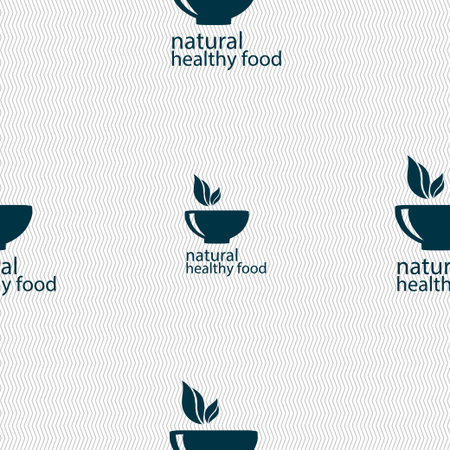Introduction to Plant-Based Eating in the UK
In recent years, plant-based eating has surged in popularity across the United Kingdom, reflecting both a growing awareness of health benefits and a desire for more sustainable food choices. This movement is not just a fleeting trend but a significant shift in dietary habits that is shaping how Britons approach nutrition. In the UK context, “plant-based” often refers to diets centred around fruits, vegetables, whole grains, legumes, nuts, and seeds, with limited or no animal-derived foods. Unlike strict veganism—which excludes all animal products—many people following plant-based diets in the UK may still occasionally include dairy or eggs, adopting a flexible approach based on personal values and nutritional needs. The rise of plant-based eating can be attributed to various factors: public health campaigns promoting reduced meat consumption, increased availability of high-quality meat alternatives in British supermarkets, and heightened environmental concerns linked to traditional farming. With organisations like the NHS and British Dietetic Association now providing guidance on how to achieve balanced nutrition through plant-based choices, more individuals are confident in making the switch. As we explore plant-based eating further, it’s important to understand these local definitions and trends as they directly impact everyday nutrition decisions—especially when considering key aspects like bone health.
2. Fundamentals of Bone Health
Understanding bone health is essential, particularly when considering plant-based eating in the UK. Bones are dynamic, living tissues comprised primarily of collagen (a protein that gives flexibility) and minerals such as calcium and phosphorus, which provide hardness and strength. This structure allows our skeleton to support movement, protect organs, and store crucial minerals.
Essential Nutrients for Bone Health
Maintaining strong bones throughout life depends on getting the right nutrients. The following table highlights key nutrients for bone health, their roles, and common plant-based sources suited to UK diets:
| Nutrient | Role in Bone Health | Plant-Based Sources (UK-friendly) |
|---|---|---|
| Calcium | Main mineral for bone strength | Fortified plant milks, tofu, kale, broccoli, almonds |
| Vitamin D | Aids calcium absorption | Fortified cereals, mushrooms exposed to sunlight; sun exposure is vital in the UK especially during winter months |
| Magnesium | Supports bone structure and vitamin D metabolism | Pumpkin seeds, whole grains, legumes, spinach |
| Vitamin K | Helps bind calcium to bones | Spinach, kale, spring greens, broccoli |
| Protein | Builds bone matrix and repairs tissue | Lentils, chickpeas, beans, quinoa, soy products |
| Zinc | Assists bone tissue renewal and repair | Pumpkin seeds, wholemeal bread, beans, nuts |
The Importance of Lifelong Bone Care
Bone density peaks in early adulthood but naturally declines with age. In the UK, osteoporosis and fractures are a significant public health concern—especially in older adults and post-menopausal women. Ensuring adequate intake of these nutrients from childhood through later life is crucial for reducing long-term risks. A well-planned plant-based diet can meet these needs if attention is paid to nutrient variety and fortified foods.
![]()
3. Key Nutrients for Bone Health in a Plant-Based Diet
Maintaining strong bones while following a plant-based diet in the UK requires careful attention to certain nutrients.
Calcium: The Foundation of Bone Health
Calcium is vital for bone strength and structure. While dairy is a traditional source, many plant-based alternatives are available in the UK. Look for calcium-fortified plant milks (such as soya, oat, or almond), calcium-set tofu, leafy greens like kale and spring greens, and sesame seeds including tahini. Always check labels on plant milks and yoghurts to ensure they are fortified with at least 120mg calcium per 100ml.
Vitamin D: Supporting Calcium Absorption
Vitamin D helps your body absorb calcium efficiently. In the UK, sunlight is limited—especially from October to March—so dietary sources become crucial. Few foods naturally contain vitamin D, but mushrooms exposed to UV light and fortified spreads or cereals can help. The NHS recommends everyone consider a daily vitamin D supplement during autumn and winter.
Protein: Building Blocks for Bones
Protein supports bone maintenance and repair. Good plant-based sources in the UK include lentils, chickpeas, beans, tempeh, tofu, quinoa, nuts, and seeds. Soya products provide all essential amino acids and are particularly beneficial for those seeking complete proteins on a vegan diet.
Other Important Nutrients
Magnesium (found in whole grains, nuts, and leafy greens) and vitamin K (in broccoli, spinach, and cabbage) also play roles in bone health. Omega-3 fatty acids from flaxseeds, chia seeds, hemp seeds, and walnuts may support bone mineral density.
Choosing Fortified Foods
The UK market offers a wide range of fortified foods tailored for plant-based eaters: breakfast cereals, non-dairy milks, and spreads often contain added calcium and vitamin D. Prioritising these products can help bridge nutritional gaps without major changes to your daily meals.
Summary
A well-planned plant-based diet in the UK can fully support bone health by focusing on key nutrients from both whole foods and fortified products. Consistent attention to food choices ensures you meet your needs for calcium, vitamin D, protein, and other critical micronutrients.
4. Navigating Nutritional Challenges
Transitioning to a plant-based diet can offer many health benefits, but it also comes with specific nutritional hurdles—particularly regarding bone health. Within the UK context, certain nutrients crucial for bone strength are less abundant or less bioavailable in plant-based foods compared to animal products. The table below outlines some of the key nutrients at risk, their common plant-based sources, and practical strategies for ensuring adequate intake:
| Nutrient | Role in Bone Health | Plant-Based Sources | UK-Specific Strategies |
|---|---|---|---|
| Calcium | Essential for bone structure and strength | Fortified plant milks, tofu (with calcium sulphate), kale, broccoli, almonds, sesame seeds (tahini) | Select fortified products; include leafy greens daily; consider calcium-set tofu in stir-fries and salads |
| Vitamin D | Aids calcium absorption and bone maintenance | Fortified cereals and spreads, mushrooms exposed to sunlight | Check labels for vitamin D2 or vegan D3; take supplements especially during UK winter months (NHS recommends October–March) |
| Protein | Supports bone matrix and muscle mass | Pulses, lentils, beans, quinoa, soy products, nuts and seeds | Vary protein sources throughout the week; try British-grown fava beans or peas as sustainable options |
| Omega-3 Fatty Acids (ALA) | Reduces inflammation affecting bone turnover | Chia seeds, flaxseeds, walnuts, rapeseed oil | Add ground flaxseed or chia to porridge; use rapeseed oil in salad dressings—a common UK staple |
| Iodine | Vital for thyroid function (impacts bone growth) | Seaweed (nori), iodised salt (not standard in UK) | Consider an iodine supplement if not consuming seaweed regularly; be cautious of excessive seaweed intake due to variable iodine content |
| Vitamin B12 | Prevents elevated homocysteine which affects bones | Fortified foods (plant milks, yeast extract), supplements | Select products specifically labelled as B12-fortified; regular supplementation is often necessary for vegans in the UK |
| Zinc & Iron | Required for bone mineralisation and repair | Pumpkin seeds, lentils, chickpeas, wholegrains, dried fruit, spinach | Soy sauce or vinegar can help iron absorption; cook pulses thoroughly; pair iron-rich foods with vitamin C sources (e.g., peppers) |
Common Pitfalls for Plant-Based Eaters in the UK:
- Lack of awareness about fortified foods: Many plant-based staples in the UK are not automatically fortified—always check packaging.
- Soy allergy or intolerance: Limits access to some of the most nutrient-dense plant proteins; diversify with lentils and grains.
- Sporadic supplementation: Inconsistent use of vitamin D and B12 supplements can leave gaps—set reminders or build into routine shopping lists.
Practical Solutions Tailored to the UK:
- Diversify weekly meal plans: Incorporate locally available vegetables like kale and spring greens alongside imported foods.
- Tune into seasonal produce: Leverage UK-grown pulses and root vegetables for nutrient density and sustainability.
- Liaise with local GPs or dietitians: Seek NHS advice on personalised supplementation if unsure about meeting requirements.
A Final Note on Labels:
The diversity of food labelling standards across UK supermarkets means vigilance is essential—look out for phrases such as “fortified with calcium/vitamin D/B12” when shopping. By recognising potential nutritional gaps early and adopting targeted strategies using readily available UK foods and supplements, it’s entirely feasible to support strong bones while enjoying a plant-based lifestyle.
5. Everyday Plant-Based Meal Ideas
Adopting a plant-based diet in the UK doesn’t mean sacrificing local flavours or nutritional needs, especially when it comes to supporting bone health. With a little creativity and some simple swaps, traditional British meals can be both plant-based and rich in key nutrients like calcium, vitamin D, and protein.
Breakfast: Fortified Options with British Flair
Start your day with a hearty bowl of porridge made from rolled oats, cooked with fortified plant milks such as oat or soya milk—many brands in the UK add calcium and vitamin D. Top with sliced seasonal berries, flaxseeds, and a spoonful of almond butter for extra nutrients.
Lunch: Classic Sandwiches and Salads Reimagined
For lunch, try a chickpea “tuna” sandwich using mashed chickpeas, vegan mayo, diced red onion, and cress on wholegrain bread. Alternatively, enjoy a traditional ploughman’s salad with roasted chickpeas instead of cheese, wholemeal bread, pickled onions, and locally grown tomatoes. Add steamed broccoli or kale to boost calcium content.
Dinner: Comfort Foods Made Plant-Based
Give classic British dinners a plant-based twist by making shepherd’s pie with lentils and root vegetables topped with mashed sweet potato. For a Sunday roast alternative, use nut roast or marinated tofu as the centrepiece, served alongside roasted parsnips, carrots, steamed greens like spring cabbage, and plenty of gravy made from vegetable stock.
Simple Swaps for Traditional Favourites
- Replace dairy cheese with calcium-fortified vegan alternatives in recipes like cauliflower cheese.
- Use tahini (sesame paste) or white beans blended into sauces for creamy texture and added calcium.
- Choose wholemeal bread over white for sandwiches and toast to increase nutrient density.
Snack Ideas for Strong Bones
- A handful of dried figs or almonds—both naturally high in calcium.
- Soy yoghurt pots with mixed seeds for an afternoon pick-me-up.
- Baked oat bars made with fortified plant milk and chia seeds.
Embracing these UK-inspired meal ideas not only helps maintain bone health but also honours local traditions and ingredients. With small adjustments and thoughtful choices, it’s entirely possible to nourish your bones while enjoying the comforting foods you love.
6. Public Health Guidance and Local Resources
When considering plant-based eating and its impact on bone health, it is essential to turn to trusted public health guidance and make use of local resources available in the UK. The NHS offers clear recommendations regarding dietary choices that support strong bones, regardless of whether you follow a plant-based, vegetarian, or omnivorous diet.
NHS Recommendations for Bone Health
The NHS advises ensuring adequate intake of calcium and vitamin D, which are both vital for maintaining healthy bones. For those on a plant-based diet, calcium can be sourced from fortified plant milks, tofu set with calcium, leafy greens such as kale and bok choy, as well as almonds and sesame seeds. Vitamin D, meanwhile, is harder to obtain from food alone, especially during the winter months in the UK. The NHS recommends that everyone consider taking a daily supplement containing 10 micrograms of vitamin D between October and March when sunlight exposure is limited.
Reliable UK-Specific Organisations
If you’re seeking further tailored advice or support, several reputable UK organisations offer evidence-based resources:
The British Dietetic Association (BDA)
The BDA provides practical guides on balanced plant-based diets and has resources specifically focused on bone health for all age groups.
Vegan Society
The Vegan Society offers nutrition information sheets addressing common concerns about plant-based eating, including tips for getting enough calcium and vitamin D.
British Nutrition Foundation (BNF)
The BNF supplies accessible factsheets and educational materials that break down current research and recommendations for healthy eating in the UK context.
Making Use of Local Support
Beyond online resources, many local GP surgeries and NHS Trusts run nutrition clinics or offer referrals to registered dietitians who can provide personalised advice. Community groups such as local vegan societies or plant-based meetups can also be valuable sources of peer support and shared experience. By making use of these trusted avenues, you can ensure your dietary choices not only align with your ethical values but also meet your body’s requirements for lifelong bone health in the UK setting.


